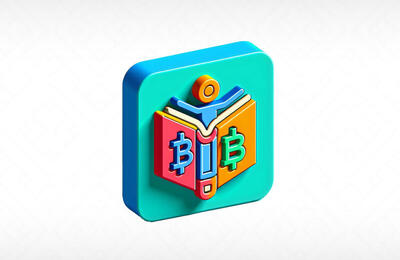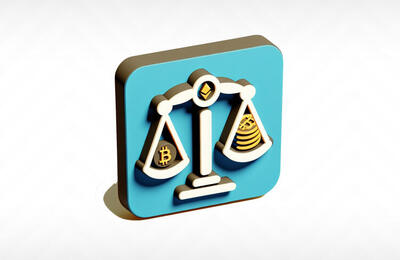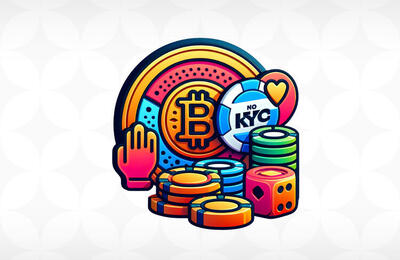
The “Midas touch” was named after the Greek myth of King Midas, who could turn whatever he touched into gold. Crypto has been rumored to make every industry it has proliferated better, almost turning these industries into golden versions of themselves. But like the King Midas story, is this only a myth, or is there only fact to this exciting claim?
Let’s find out.
1. Gaming and NFTs (Non-Fungible Tokens)
This is how cryptocurrency has changed the gaming industry:
Anonymity
Perhaps the most defining feature of crypto in gaming and gambling is the anonymity it affords users. Now, players the world over can sign up to any platform of their choice and deposit and withdraw money without having to share too much information. It is for this reason that crypto casinos like the 10 best ones here continue to gain popularity in most corners of the world.
Ownership and Digital Assets
Cryptocurrencies and NFTs allow gamers to truly own and trade digital assets within games, creating new economies and opportunities for players and developers.
Monetization
NFTs have enabled creators to monetize digital content such as artwork, music, and virtual real estate, providing new revenue streams and marketplaces.
2. Financial Services
The following are some of the ways cryptocurrency continues to revolutionize the finance industry:
Payments and Transactions
Cryptocurrencies like Bitcoin and Ethereum have revolutionized the way we make payments and conduct transactions, not just in the gambling industry but also further afield. They offer faster, more secure, and cheaper alternatives to traditional banking systems, especially for cross-border transactions.
Remittances
Cryptocurrencies have reduced the costs and time associated with cross-border remittances, benefiting both senders and recipients, particularly in regions with limited access to banking services.
Smart Contracts
Blockchain platforms like Ethereum enable the creation of smart contracts, which automate and enforce the terms of agreements without intermediaries. This streamlines processes in areas like insurance, real estate, and supply chain management.
3. Supply Chain Management
The following are ways cryptocurrency has improved supply chain management:
Transparency
Blockchain technology provides transparent and immutable records of transactions and product movements, enhancing supply chain visibility and traceability. This is particularly valuable in industries like food and pharmaceuticals to ensure authenticity and quality control.
Counterfeit Prevention
Cryptographic features in blockchain systems help verify the authenticity of products and reduce counterfeiting and fraud in supply chains.
4. Real Estate
Real estate has benefitted from the introduction of cryptocurrency with the introduction of tokenization:
Tokenization
Blockchain technology enables the fractional ownership and trading of real estate assets through tokenization, making it easier for investors to diversify their portfolios and participate in property markets globally.
5. Healthcare
Another industry that continues to reap benefits with the introduction of crypto technology is the healthcare sector, and it does so in the following ways:
Data Security
Blockchain can enhance the security and privacy of healthcare data, ensuring that patient records are tamper-proof and accessible only to authorized parties, thus improving data management and interoperability.
Supply Chain for Pharmaceuticals
Blockchain helps in tracking pharmaceuticals from production to distribution, reducing the risk of counterfeit drugs entering the market.
6. Energy and Sustainability
The following are some ways the advent of crypto technology is aiding sustainability in the energy sector:
Decentralized Energy Trading
Blockchain facilitates peer-to-peer energy trading, allowing consumers to buy and sell energy directly from each other, promoting renewable energy adoption and efficiency in energy markets.
Carbon Credits
Cryptocurrencies and blockchain platforms are being used to create and trade carbon credits, incentivizing sustainable practices and emissions reduction efforts.
7. E-commerce
The introduction of cryptocurrency continues to aid e-commerce in the following ways:
Global Payments
Cryptocurrencies enable businesses to accept payments from customers worldwide without the need for traditional banking infrastructure. This can reduce transaction fees and processing times, especially for international transactions.
Reduced Fraud
Blockchain technology can enhance security in online transactions by providing immutable records and reducing the risk of chargebacks and fraud.
8. Education
The far-reaching arms of cryptocurrency have helped the education sector improve in the following ways:
Credentials and Certificates
Blockchain technology can be used to secure and verify educational credentials, certificates, and diplomas, reducing fraud and simplifying the verification process for employers and educational institutions.
Micropayments for Content
Cryptocurrencies enable micropayments, allowing content creators such as educators to monetize their content directly without relying on advertising or intermediaries.
9. Insurance
This is how insurance claims and processing have evolved since the introduction of Crypro technology:
Claims Processing
Blockchain and smart contracts can automate and streamline insurance claims processing, reducing administrative costs, improving transparency, and expediting claim settlements.
Fraud Prevention
The transparency and immutability of blockchain records help in preventing insurance fraud by ensuring the authenticity of claims and policy information.
10. Entertainment and Media
Last but not least is entertainment and media. This sector has advanced with the following measures made possible with cryptocurrency:
Royalty Payments
Cryptocurrencies and blockchain technology can revolutionize royalty payments in the entertainment industry by enabling transparent and direct payments to content creators, musicians, artists, and other stakeholders.
Content Distribution
Blockchain-based platforms can facilitate fair and transparent distribution of digital content, ensuring that creators receive their fair share of revenues and maintaining copyright integrity.
After discussing 10 sectors that are already benefiting from crypto, it seems it does indeed have the Midas Touch!















